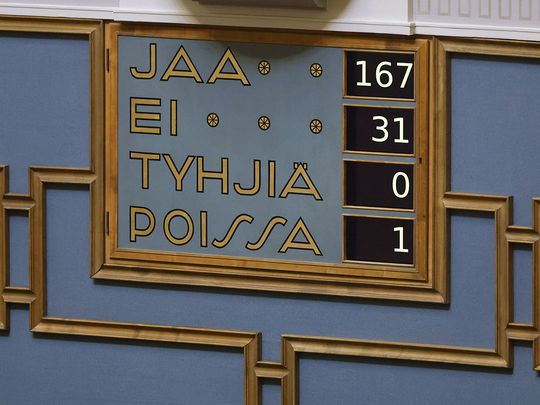World
Finland passes controversial border bill

A total of 167 MPs voted in favour of the “act on temporary measures to combat instrumentalised migration” while 31 voted against.
To enter into force, the bill needs to be signed by Finland’s President Alexander Stubb – who has supported the legislation. That typically is done within days of adoption.
The act would be in force for a year and would enable the Finnish government to restrict the reception of applications for international protection at and near Finland’s border.
Finland’s right-wing government has argued new legal tools were needed after the arrival last autumn of nearly 1,000 migrants without visas on its 1,340-kilometre eastern border with Russia.
“It’s a strong message to Russia and a strong message to our allies. Finland will take care of its own security and the security of the EU border,” Finnish Prime Minister Petteri Orpo told a press conference just after the vote in parliament.
The Nordic country closed its border with Russia in mid-December in response to the surge in migrants.
Legal experts have noted that the bill conflicts with human rights obligations enshrined in Finland’s constitution as well as international legal commitments.
The bill needed a five-sixths voting majority to be first declared urgent, after which it could be passed with a two-thirds majority vote.
Outside parliament, around 100 people had gathered to protest the law dubbed a “deportation law,” according to local media.
Opposition parties like the Green Party and Left Alliance, as well as individuals from other parties in parliament, have strongly opposed the bill.
Left Alliance leader Li Andersson said in a post to X that “it is a sad day for Finland’s rule of law and human rights.”
The rules – which is aimed at countering what Helsinki has dubbed Russian “hybrid attacks” – can be applied for a one month at a time in limited areas, if Finland’s sovereignty and national security is deemed threatened.
Once activated, only certain asylum seekers, such as children or people with disabilities, will be allowed to seek protection.
Their eligibility to apply would depend on an assessment of their case by border guards, with refused asylum seekers unable to appeal the decision.










